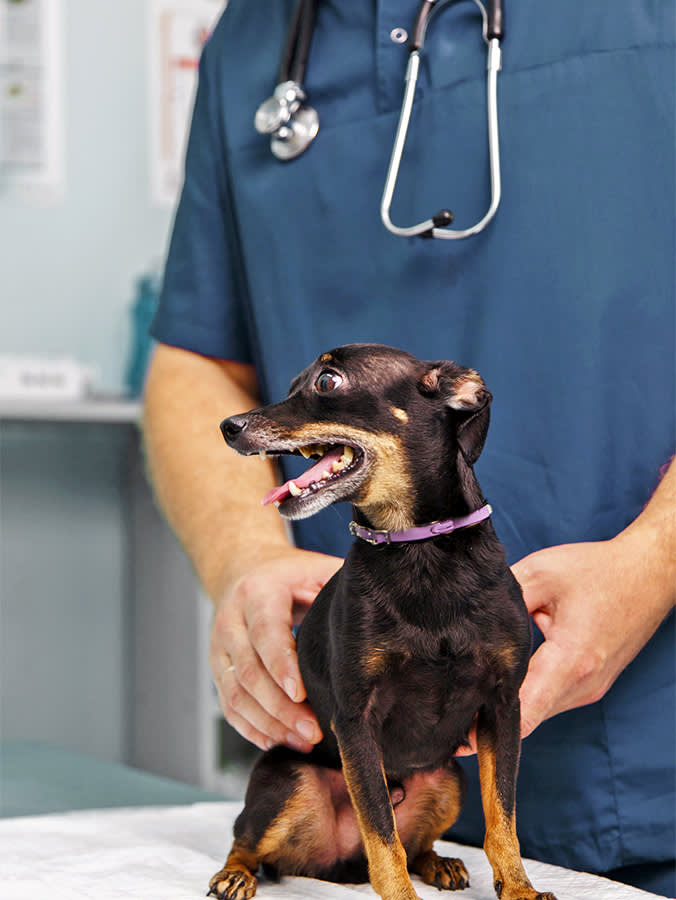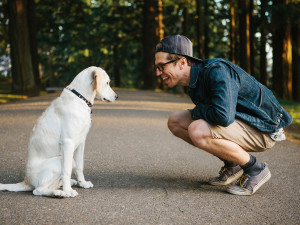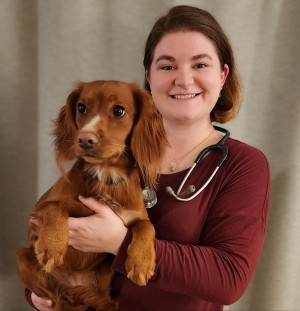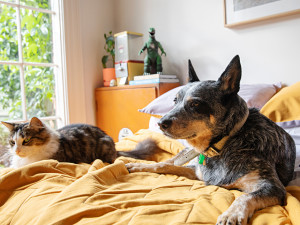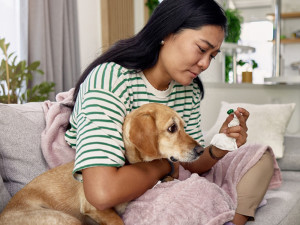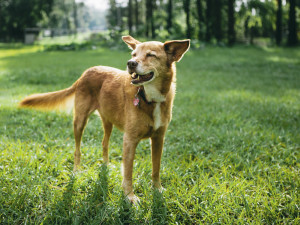Are Yearly Dog Vaccinations Really Necessary in the UK?
Doggy admin may be tough, but it’s important
Puppy vaccination courses, boosters, annual vaccinations, jabs; the seemingly endless list of vaccinations and the need to remember to book them at the vets can be exhausting. Are they really necessary for your dog in the UK? The simple answer is yes, but don’t despair just yet. Read on for a clearer picture and find out why, which ones you need to focus on and when these vaccinations are needed. As a pet parent, keeping your dog safe, happy and healthy should be your number one priority – and vaccines are a really good way to start.
Main takeaways
Vaccinating your pup reduces the risk and the severity of illness for a variety of diseases, some of which can be fatal.
A starter course of two or three injections at 2–4 week intervals are given initially, then yearly boosters ongoing.
Unvaccinated dogs, older dogs with weakened immune systems and young puppies are most at risk of disease.
Core vaccinations are recommended for all dogs, non-core vaccinations are only advised in certain situations.
Which dog vaccines are necessary each year?
The core vaccinations are the main vaccinations included in the puppy and annual booster vaccinations. They are the ones that all dogs are recommended to get as either the risk of catching the disease is high or the level of danger to your pet is high if they contract it. They are:
Distemper
Distemper is a highly contagious viral disease that is often fatal, with a mortality rate of 50 percent in dogs and 80 percent in puppies. Clinical signs are varied and can affect the respiratory, gastrointestinal and nervous system. Symptoms include runny eyes and nose, a cough and high temperature to seizures and paralysis.
Distemper has thankfully become very rare in the UK through widespread vaccination use, however it is not eradicated and dogs can be at risk if not vaccinated. There is no cure for distemper, so treatment includes supportive care and treating secondary infections that take hold while the immune system is compromised.
Hepatitis
Infectious canine hepatitis is a highly contagious disease caused by one type of adenovirus. So you may see some brands of vaccines labelled ‘A’ for adenovirus rather than ‘H’ for hepatitis on your pup’s vaccine card.
The disease mainly affects the liver, but it can also damage the spleen, kidneys and eyes. Clinical signs include: high temperature, bloody vomit and diarrhoea, pale or jaundice skin and gums, bruising or small red dots, and blue or cloudy eyes. There is also no cure for infectious canine hepatitis, and so treatment involves supportive care and nursing to help limit the symptoms and to help the patient’s own immune system fight it.
Parvovirus
Parvovirus is another highly contagious disease that mainly affects young puppies, due to the severity of the disease and age of the pups at risk it can be fatal. It causes severe diarrhoea and vomiting, high temperature, lethargy and pale gums, abdominal pain and can cause heart problems.
Puppies with parvovirus can quickly become dehydrated and so prompt supportive treatment is crucial. Unfortunately there are still outbreaks of parvovirus in the UK, so it is advised not to let your pup mix with others until fully vaccinated.
Leptospirosis
Leptospirosis is a bacterial disease causing mild-to-life threatening illness. Humans can also get leptospirosis, when it is known as Weil’s disease. Transmission is through contact with urine from infected animals, including in contaminated water from rodent carriers. Clinical signs are varied and can look a lot like other common ailments such as vomiting, diarrhoea, lethargy, jaundice and muscle pain.
There are newer strains of the bacteria being vaccinated against to increase protection, so you may see the vaccine ‘L2’ which covers for two strains, vs ‘L4’ and the newer ‘L6’ which covers four and six strains respectively. Cases of leptospirosis are still seen in the UK, with an increase since 2020, so vaccination is the best way to keep your pup protected.
Non-core vaccinations
These vaccinations are for diseases that only certain dogs are at risk of, or only need in certain situations. These include:
Rabies: the UK is currently rabies free but it is legally required if travelling abroad.
Bordetella and parainfluenza: grouped together as components that cause ‘Kennel Cough’. They are not only spread in kennels and so it is advised for dogs that tend to mingle with other dogs often such as at doggy day care.
Leishmaniasis: for those travelling to places with increased risk of exposure.
Canine herpes virus: for breeding dogs.
Lyme disease: only needed for those at higher risk of exposure.
Why you should vaccinate your dog
Vaccinations are a very important aspect of routine preventative healthcare for your pup, they keep your dog safe from a range of infectious diseases, some of which are very nasty and potentially fatal. They work by activating your dog’s immune system, triggering the production of antibodies against specific viruses or bacteria that cause a disease.
Vaccines have been shown to be successful in reducing spread of infectious diseases as well creating a herd immunity. This is where the disease is less common in a population and so those who are immunocompromised, or animals unable to have the vaccinations due to underlying conditions, are still protected to a degree. Diseases have even been eradicated from the world through vaccination strategies; smallpox in humans and rinderpest in animals, for example.
How long do vaccines last?
Each vaccination and even individual brand of vaccine last for different amounts of time. Follow your own vet’s advice based on what your individual dog needs and match the frequency to the vaccine brands protocols. But generally speaking, following the first year booster after the initial core vaccination course, the DHP (distemper, hepatitis, parvovirus) portion is only needed every three years. Leptospirosis needs a top up every year, so this is combined with the DHP on the years that all are needed. This is why your vets will look at your dog’s vaccination card to ensure the right vaccination is given within the three-year cycle.
Do certain vaccines need to be administered more often?
To get the immunity to the right level an initial course of primary vaccinations are given. This is usually when they are still puppies starting at 6–8 weeks old, but it can be done again as a ‘restart’ course if vaccinations are overdue. Depending on the age of your puppy when getting their first vaccination there are either two or three vaccinations given at 2–4 week intervals. This is because their maternally derived antibodies that stick around in early puppyhood can limit the full effect of the vaccination, so follow your vet’s advice for the best course of action for your own individual pup.
Yearly dog vaccines: frequently asked questions
What happens if I don’t vaccinate my dog every year?
If a vaccination booster is missed the antibodies for these diseases reduce and so the risk of infection increases. These antibodies can deplete quite quickly, and some vulnerable dogs are even advised to boost some vaccinations at the six month mark. If your dog has missed a vaccination, talk to your vet about doing a ‘restart’ course to get them back on track.
At what age do you stop vaccinating your dog?
Generally vaccinations continue throughout your dog’s life, however the frequency and choice of vaccinations may change depending on age, health and activities your dog enjoys. This is to match the level of risk to certain diseases and adapt their ongoing care to suit each dog. Blood tests to check antibody levels are possible to check immunity which can check to see if your dog needs a booster or not, these are called titre tests.
I’ve heard vaccinations have side effects, is it really worth it?
Side effects of vaccinations are not common, but if they do occur it is usually just a bit of soreness where the injection site was and tiredness – just the same with us humans when we get jabs. Adverse reactions are even rarer, and are mainly limited to vomiting, diarrhoea or an allergic reaction.
The benefits of vaccinations far outweigh the cons due to the physical, emotional and financial toll that would occur if your pup was to contract one of these potentially fatal diseases. Discuss your concerns with your vet if you would like to understand the benefits further.
References
“Canine Distemper | Cornell Wildlife Health Labopens in new tab.” Cornell.edu, 4 Nov. 2016. Accessed 7 Jan. 2025.
“Disease Eradication - WOAH - World Organisation for Animal Healthopens in new tab.” WOAH - World Organisation for Animal Health, 28 May 2022. Accessed 7 Jan. 2025.
VMD Position Paper on Authorised Vaccination Schedules for Dogsopens in new tab. Accessed 7 Jan. 2025.
Lunn, Katharine F. “Leptospirosis in Dogsopens in new tab.” MSD Veterinary Manual, 8 Feb. 2022. Accessed 6 Jan. 2025.
Vet Times. “Vets Warned of Big Increase in Lepto Casesopens in new tab.” Vet Times, 2024, . Accessed 6 Jan. 2025.
“Leptospirosisopens in new tab.” NHS. Accessed 13 Jan. 2025.
